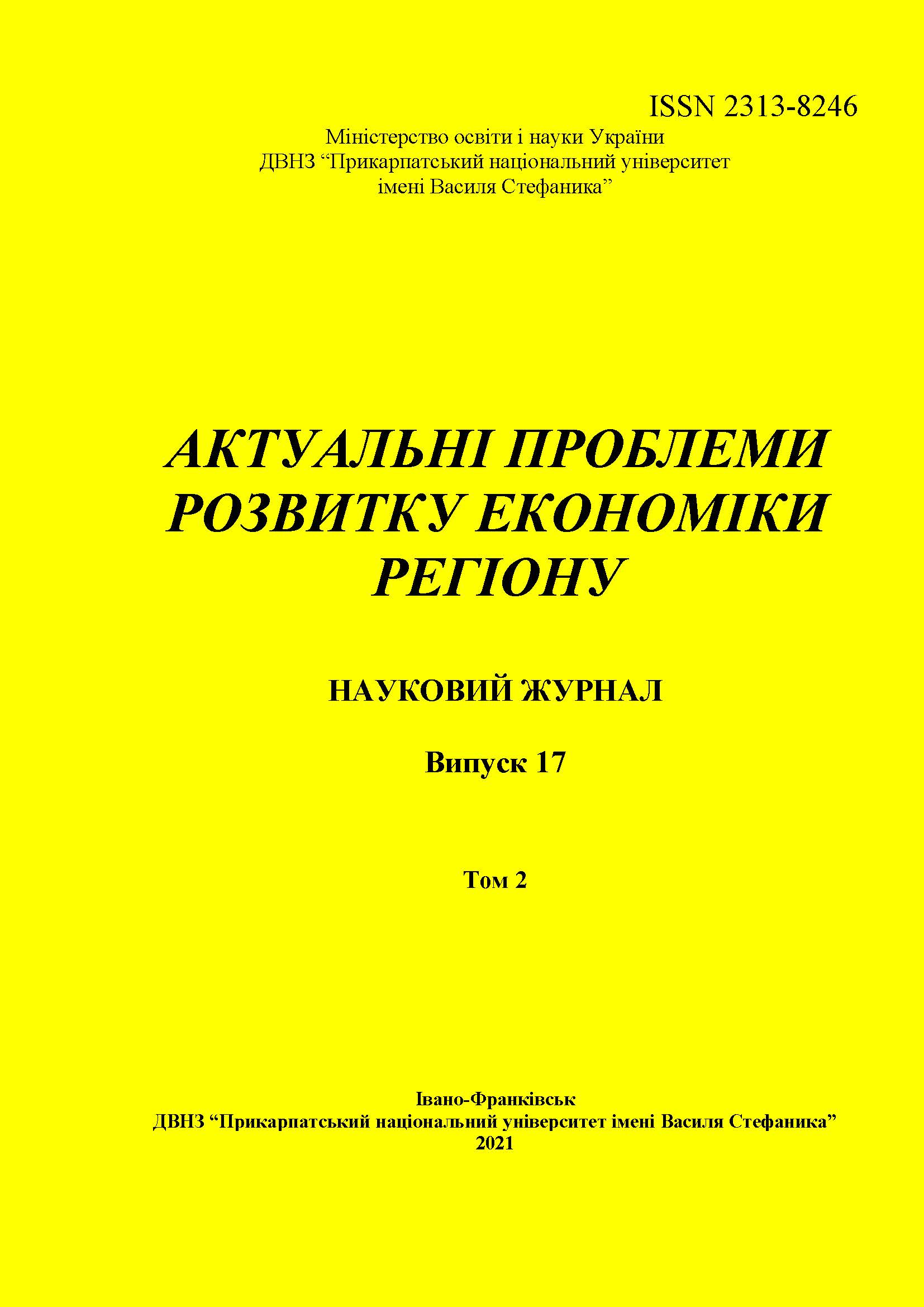INNOVATIVE PLATFORM OF THE PARADIGM OF ENERGY SAVING OF DEVELOPMENT: MODERN TRENDS AND IMPERATIVES OF REALIZATION IN UKRAINE
DOI:
https://doi.org/10.15330/apred.2.17.260-273Keywords:
development, management, energy efficiency, investments, conceptAbstract
A significant level of energy dependence and energy intensity of the building complex of Ukraine needs to develop an effective energy saving interdisciplinary concept development, which will enable to implement investment projects on construction platform energy efficiency. The concept is based on syncretism: «Environmental Economics», «Green Lease», «Urban economy», «Surveying», «Passive House».
One of the newest tools of development proposed to use energy-efficient Buildings Industry Transportation Electricity Scenarios (BITES), based on a scenario analysis of changes in energy supply and demand real economy, as well as evaluating the emissions of carbon dioxide production.
Given the current trends in energy efficiency in the construction industry, it is proposed to implement in practice the management of investment and construction projects, the concept of «energy-saving development» and define it as a system implementing a set of measures of economic, organizational, technical, technological, legal, environmental and social, aimed at reducing building energy costs based on the introduction of energy efficient technologies and management practices, as well as organizational sphere, optimization of business processes and interconnection of links within the production chain.
The theoretical foundations of interdisciplinary concept of development of building energy saving sector, where defined parametric performance and functional characteristics that are the basis for developing a strategic mechanism for its implementation at all levels of the economic system in order to reduce energy dependence of our country.
The results of the study can be implemented at all levels of the economic system, as the issue of improving energy efficiency is relevant. The developed interdisciplinary concept of energy-saving development of the construction complex takes into account the specifics of the development of the construction sector market and global trends, which are reflected in the latest concepts: «Environmental Economics», «Green Lease», «Urban economy», «Surveying», «Passive House».
References
2. Dzhedzhula, V. V. Energy saving of industrial enterprises: methodology of forma¬tion, management mechanism. Vinnytsia,VNTU, 2014.
3. Geiets, V. M. “Development and interaction of economic and energy policy in Ukraine.” Bulletin of the NAS of Ukraine, no. 2, 2016, pр. 46–53.
4. Golik, V. I., Komashhenko, V. I., Morkun, V. S., Morkun, N. V., and S. N.Grishhenko. “On the problem of energy saving in mining.” Nauka innov, no.14(3), 2018, рр. 33.
5. Yermіlov, S. F., Geiets V. M., Yashhenko, Yu. P., Grigorovs'kii ,V. V., and V. E.Lіr. Energy efficiency as a resource for innovative development: National report on the state and prospects of state energy efficiency policy in 2009, Kyїv, 2009.
6. Kirilenko, O. V. “Energy saving - development strategy.” Dіloviyi vіsnik, no. 2, 2010, pp. 8–11.
7. Klymchuk, M. M. “Methodology of energy saving management of enterprises on the basis of environmental economy.” Galician Economic Bulletin: a scientific journal, no. 4, 2016, pp.55-59.
8. Kulіkov, P. M., and M. M. Klymchuk. Management of energy saving in construction companies: theory, methodology, practice. Іvano-Frankіvs'k, 2017.
9. Mikitenko, V. V. “Energy efficiency of the national economy: socio-economic aspects.” Vіsnik NAN Ukrainy, no. 10, 2006, pp. 17-26.
10. Buildings Industry Transportation Electricity Scenarios (BITES) Tool, bites.nrel.gov/index.php Accessed 19 Nov. 2021.
11. Chernyshev, D., Ivakhnenko, I., and M. Klymchuk. “The organization of biosphere compatibility construction : justification of the predictors of building development and the implementation prospects.” International Journal of Engineering & Technology, no.7 (3.2), 2018, pp. 584-586.
12. Daly, H., and J.Farley Ecological Economics: Principles and Applications. 2nd. ed. Island Press, 2010.
13. Feist, W. “Das kostengünstige Passivhaus –Proektbeschreibung.” Arbeitkreis kostengünstige Passivhäuser. Protokolband № 1. Darmstadt, 1996, pp. 9–21.
14. Green Growth Strategy Interim Report: Implementing Our Commitment for a Sustainable Future [C/MIN(2010)5, Paris, 27–28 May 2010], www.oecd.org/greengrowth. Accessed 19 Nov. 2021.
15. IEA. 2014. “Capturing the Multiple Benefits of Energy Efficiency”. Paris Cedex, International Ener¬gy Agency (IEA).
16. Kurnitski, Y., Saari, A., and T. Kalamees. “Cost optimal and nearly zero (nZEB) energy performance calculations for residential buildings with REHVA definition for nZEB national implantation.” Energy and building, no 43, 2011, pp. 3279–3288.
17. Marjani, T., Pourabedi, M., and L. A. Saaedi. “Diagnosis on City Councils and Municipalities Interactions: (A Study on the Cities of Lorestan Province).” Urban Economics and Management, no.6(2(22)), 2018, pp. 145-162.
18. Sekret, R., Sanytsky M., and M. Woitsikevich. “Relation between energy characteristics and cost for single family buildings.” Рroceedings of the 4th International conference on contemporary problems in architecture and construction, September 24–27, 2012. Czestochowa, 2012, pp. 220 – 226.
19. Kodetskyi, V. “$ 50 billion in construction. What kind of Ukraine do foreign investors need.” UBN , no.3, 2021, pp.45.
Downloads
Published
How to Cite
Issue
Section
License
- Authors retain copyright and grant the journal right of first publication with the work simultaneously licensed under a Creative Commons Attribution NonCommercial NoDerivs 4.0 Unported License that allows others to share the work with an acknowledgement of the work's authorship and initial publication in this journal.
- Authors are able to enter into separate, additional contractual arrangements for the non-exclusive distribution of the journal's published version of the work (e.g., post it to an institutional repository or publish it in a book), with an acknowledgement of its initial publication in this journal.
- Authors are permitted and encouraged to post their work online (e.g., in institutional repositories or on their website) prior to and during the submission process, as it can lead to productive exchanges, as well as earlier and greater citation of published work (See The Effect of Open Access)


